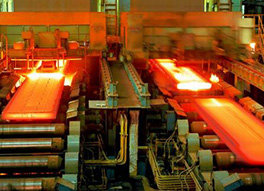Steel Manufacturing Overview

Steel plays a major role in almost every aspect of our daily lives. Our homes, appliances, vehicles and other everyday items all depend on the strength and quality of a wide range of steel products.
To meet these challenges, many steel companies have invested in creating structural advantage—in enhancing plants, equipment and technology to increase production, throughput and customer responsiveness while also hopefully reducing costs.
These investments have often been significant. But in many cases, steel companies have not seen the return on investments that they have expected—or the operational excellence they need.
However, KPI has found that execution excellence relies on four fundamental pillars, or principles, that can be used to guide efforts. These pillars are:
- Simplicity. Many of the challenges facing the metals industry bring greater complexity to processes.
- Speed. To keep up with changing demand and customer requirements, steel companies need to accelerate the movement of value-added information, materials and/or products through manufacturing processes.
- Focus. This means verifying that limited resources are being used to the appropriate advantage, and strategic and structural issues are given priority.
- Discipline. Companies can take a disciplined approach to improving execution by building the concept of managing for performance into the organization.
-

By emphasizing these four pillars, companies have seen benefits ranging from higher quality and reliability to increased flexibility, improved customer satisfaction and reduced operating costs.
Our specialists can help your team evaluate these factors and tailor a program specific to your organizations’ goals. KPI has the expertise to help you drive results by developing and implementing innovative strategies, improving operations while reducing the risk.
